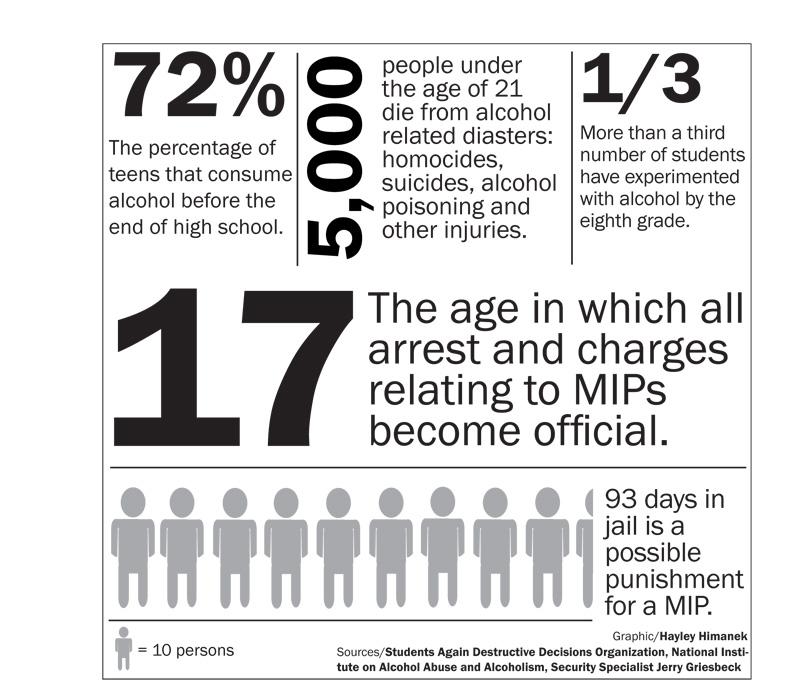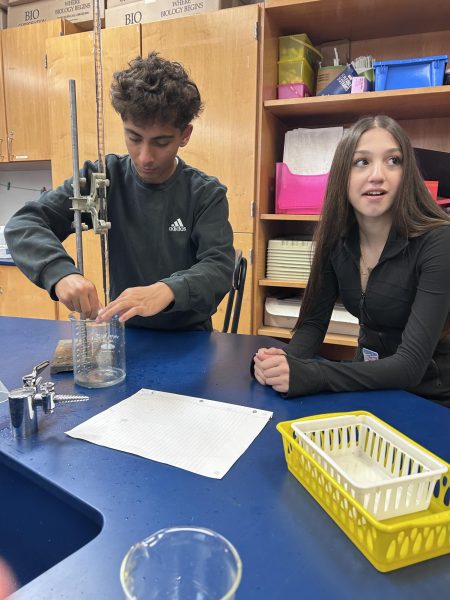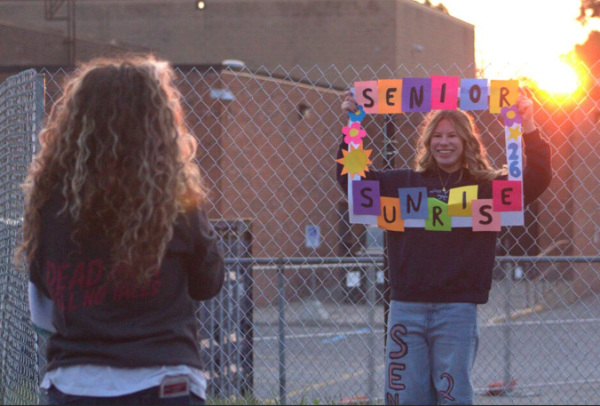Underage drinking increases around New Year’s Eve
Each year, 5,000 people under the age of 21 die from alcohol disasters: crashes, homicides, suicides, alcohol poisoning and other injuries such as burning or drowning, according to the National Institute on Alcohol Abuse and Alcoholism.
“Underage drinking occurs way too much in high school,” senior Mitch Altman said. “Someone I know got alcohol poisoning and needed his stomach pumped, which terrified me of the consequences.”
New Year’s Eve is considered the largest drinking night for students, according to Security Officer Jerry Griesbeck. Underage drinking consumption occurs in 72 percent of teens by the end of high school and more than a third of students by the eighth grade, the Students Against Destructive Decisions Organization surveyed.
“The consequences are much larger and bigger than they really appear to be,” Griesbeck said.
In Michigan, possession, consumption and purchase of alcohol by minors is prohibited. If caught, they receive a Minor in Possession (MIP) charge, which leads to fines starting at $100 and such as substance abuse treatment, according to the Michigan Legislature.
“It’s a lot harder for the present age group to get away with drinking than it was in the past,” Griesbeck said. “Not only can the teens get into trouble; but if it’s a house party, the parents can receive the same consequences.”
At the age of 17, all arrests and tickets relating to MIPs become official. This affects college acceptance chances, job opportunities and knocks out government career possibilities.
“The effects from alcohol are devastating and you don’t receive any warnings when you are first caught,” Shelby Township Police Officer Ron Weiss said.
If 16 and under, the court may defer a minor’s sentence. If caught at the age of 17 and older, one can receive the full extent of the law–93 days in jail, according to Weiss.
“It eventually affects every aspect of your life and health,” Nurse Anesthetist Angela Bell said.
For teens, binge drinking has been known to cause death from alcohol toxicity, especially in college-aged students. Heavy drinking as a young person can lead to alcoholism in early adulthood, according to Bell.
Alcohol also affects the brain’s hippocampus, which stores memories and the prefrontal cortex which helps make decisions. It is a depressant, therefore it slows down reaction times, psychology teacher Lisa Hallam said.
“Students don’t realize that alcohol opens opportunities for worse events, like murder and sex crimes,” Weiss said. “Poor choices are made and lead down a bad road.”
Sex crimes are some of the largest incidents officers see when someone is under the influence.
“It’s [underage drinking] detrimental to our youth,” Bell said. “It takes countless lives every day; both the lives of the ones drinking and the lives of other innocent people.”
Your donation will support the student journalists of Eisenhower High School. Your contribution will allow us to purchase equipment and cover our annual website hosting costs.






Accoroboari • Jul 22, 2015 at 4:07 pm
Ft: Any ti an incision is produced, a scar will form as the incision heals. That is really what drives the search engine.Myth: Fat removed during liposuction always es bk. Yet a person obviously aren’t likely to make an effort to fool these devices since you are deploying it to remain safe. The compensation is also due when it comes to incorrect procedures as well as complications resulting out of surgeries as well as child birth etc. Cheap Jerseys. If there are no improvents within the volu of visitors or ranking of one’s website,Cheap NFL Jerseys China, the expert will happen with other ways which you can use to optimize the site. Businesses can very well see its advantages in the process of temporary stalling at a trade fair, house visits to custors.About MiamiBeach LuxuryRentals Author of this article encourages people to look for south beach luxury hotels to enjoy Miami vacation to the fullest. Withholding specific information and fts, even if you do not think it is significant, could make your lifestyle protection plan totally ineffective. Get answers for your questions from a certified surgeon,http://www.cheapjerseysauthority.com, and don’t let unfounded myths keep you from taking this life-changing step.